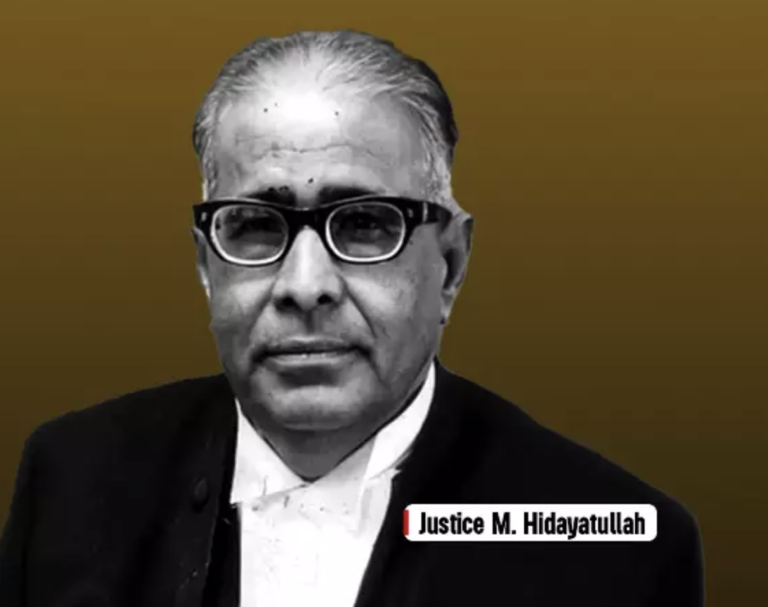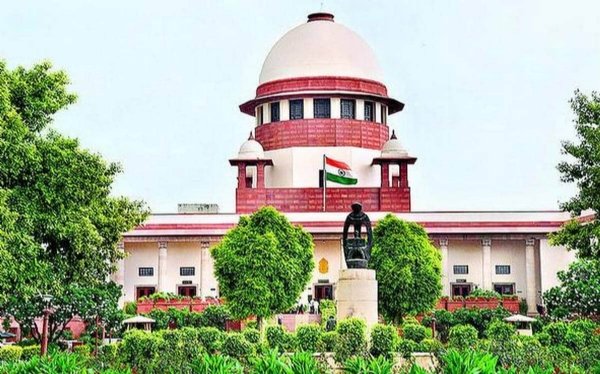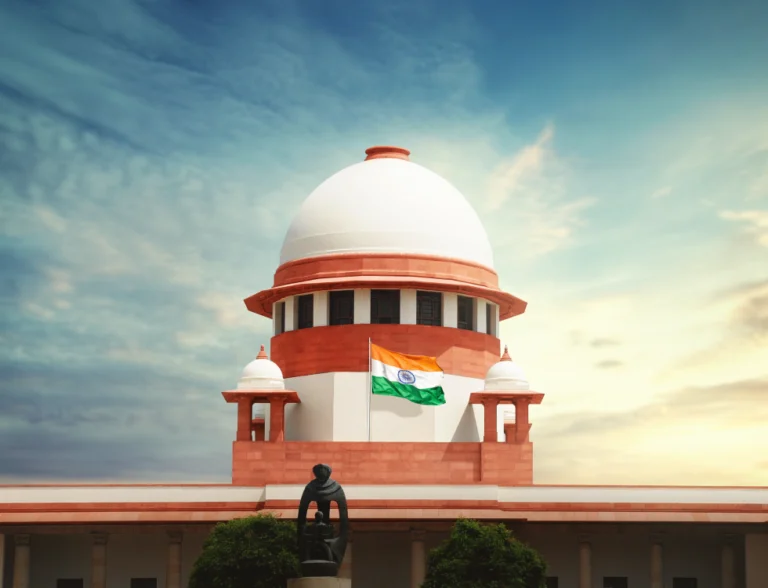[Breaking] A new case has been filed before the President of India, alleging that Chief Justice of India D. Y. Chandrachud and P.S. Narsimha violated the fundamental rights of High Court Judge Gangopadhyay.

Complaint asserts that the Chief Justice of India cannot act beyond the law.
Many members of the Bar have expressed their support for Judge Gangopadhyay in this matter.
Yesterday, the Supreme Court, in SLP diary No. 15883 of 2023, issued an order under the direction of the bench headed by Chief Justice of India Dr. D. Y. Chandrachud and P. S. Narsima. The order directed the Chief Justice of Kolkata High Court to withdraw the case of Abhishek Banerjee from the bench of Justice Gangopadhyay and assign it to a different bench.
This case is related with Sh. Abhishek Banerjee who is nephew of Mamta Banerjee. It was the petition of Mr. Abhishek Banerjee that Justice Gangopadhyay had given interview to the media in relation to the subject the matter which are being heard by him for Judicial Adjudication. They sought transfer of case to another Judge.
In this case the court without hearing Justice Gangopadhyay had passed the order. Actually, the law which are applicable in India also across the world is that whenever there are allegations against a Judge and Court has to take any adverse action, on judicial side, then as a rule said Judge should be made a party. Without the Judge being a party respondent, the allegations of bias or malafide cannot be examined by the court. In many cases even Chief Justice of India were made a party and they filed their reply affidavit and they appeared through the advocates. [S.P. Gupta v. Union of India, 1981 Supp SCC 87]
Secondly in other cases where the Judges were not made a party respondent the affidavit of the petitioner was forwarded to the Judge for calling his response. This was done more particularly the case related with recusal. In such case the affidavit of the petitioner was forwarded to the concerned Judge, his explanation is sought and based on their explanation the case was decided. [P.K. Ghosh v. J.G. Rajput, (1995) 6 SCC 744, Re:Vinay Chandra Mishra (1995) 2 SCC 584].
When the Court is about to take any action such as withdrawing case and reassigning it to another Judge, which has an impact of creating stigma on the integrity of a Judge, then the basic principle of audi alterim party mandates that the Judge should not be condemned unheard and therefore, as a rule, Justice Gangopadhyay should have been made a party or at least personal explanation on each allegations in petition should have been sought on behalf of him and case should be decided by a reasoned order by considering the explanation to the allegations in petition. But this basic rule is not followed.
The Bench of Chief Justice of India D. Y. Chandrachud & P. S. Narsimha had adopted a new procedure of calling explanation as to whether Justice Gangopadhyay had given the interview or not. This explanation was called through an enquiry conducted by Registrar General and Registrar General was asked to submit the report. This Procedure is against the procedure set out for enquiry on Judicial side in such cases as ruled in Amar Pal Singh Vs. State of U.P. (2012) 6 SCC 491 & in Re:- A Judicial Officer AIR 2001 SC 1972.
It also offends the process of enquiry set out in ‘In – House – Procedure’ framed by the Full Court. [Addl. District & Sessions Judge ‘X’ v. High Court of M.P., (2015) 4 SCC 91]
Law is very well settled that the Supreme Court or Chief Justice of India cannot by pass the rules and procedure and cannot adopt any procedure and cannot adopt any procedure at his whim & fancies. Judges can use their discretion only when there is no rule, no procedure or no precedent. [Sundarjas Kanyalal Bhatija v. Collector, Thane, (1989) 3 SCC 396]
There is no unlimited discretion or power to Judges at all levels, including Chief Justice of India. [State of Rajasthan v. Prakash Chand, (1998) 1 SCC 1, Sudakshina Ghosh Vs. Arnagaush Chakraboty 2008 SCC OnLine Cal 34, S. P. Gupta Vs Union Of India AIR 1982 SC 149]
Judges (Chief Justice of India) cannot think in terms of ‘what pleases the prince has the force of law’. [Medical Council of India v. G.C.R.G. Memorial Trust, (2018) 12 SCC 564]
Law is also settled that a Judge including Chief Justice of India if acts against the law then he/ she can be prosecuted under section. 166, 167, 218, 219, 466, 471, 474, etc. of IPC. Such Judges will also be held liable for punishment under section. 2(b), 12 of the Contempt of Courts Act, 1971. Simultaneously, such Judge/ Chief Justice of India can also be liable for departmental action including suspension & dismissal impeachment [K. Rama Reddy Vs State 1998 (3) ALD 305, Raman Lal vs. State of Rajasthan 2001 CRI. L. J. 800, K. Veeraswami VS. Union of India (1991) 3 SCC 655, Baradakanta Mishra and Ors. Vs. Registrar of Orissa High Court (1974) 1 SCC 374, New Delhi Municipal Council vs. M/s. Prominent Hotels Limited 2015 SCC OnLine Del 11910, Prabha Sharma v. Sunil Goyal, (2017) 11 SCC 77, Addl. District & Sessions Judge ‘X’ v. High Court of M.P., (2015) 4 SCC 91,103. Union of India v. K.K. Dhawan, (1993) 2 SCC 56, In Re M.P. Dwivedi, (1996) 4 SCC 152, Subrata Roy Sahara v. Union of India, (2014) 8 SCC 470 , Jagat Jagdishchandra Patel v. State of Gujarat, 2016 SCC OnLine Guj 4517, Vijay Shekhar Vs. Union of India (2004) 4 SCC 666, Muzaffar Husain v. State of U.P., 2022 SCC OnLine SC 567, Nirmal Yadav v. Central Bureau of Investigation, 2011 SCC OnLine P&H 15415, Shameet Mukherjee Vs. C.B.I. 2003 SCC OnLine Del 821, Umesh Chandra Vs State 2006 (5) AWC 4519 ALL]
The complainant made following prayers:
(i) Action under sections 166, 167, 219, 120(B), 34 of Indian Penal Code against Chief Justice of India D. Y. Chandrachud and Justice P.S. Narsimha for passing unlawful orders in Abhishek Banerjee Vs. Soumen Nandy SLP (C) Diary No. 15883 of 2023 in utter disregard and defiance of binding precedents in Amar Pal Singh Vs. State of U.P (2012) 6 SCC 491, Re:- A Judicial Officer AIR 2001 SC 1972, and against the basic principles of Audi Alterim Partem and thereby violating the fundamental rights of Hon’ble Justice Abhijit Gangopadyay and thereby bringing the majesty and dignity of the Court in to disrepute.
(ii) Directions to Attorney General for India to file a Contempt petition under section 2(b), 12 of the Contempt of Courts Act, 1971 r/w Article 129, 142 of the Constitution of India against Chief Justice of India D.Y. Chandrachud & Justice P.S Narsimha as per law laid down in C.S. Karnan (2017) 7 SCC 1.”



